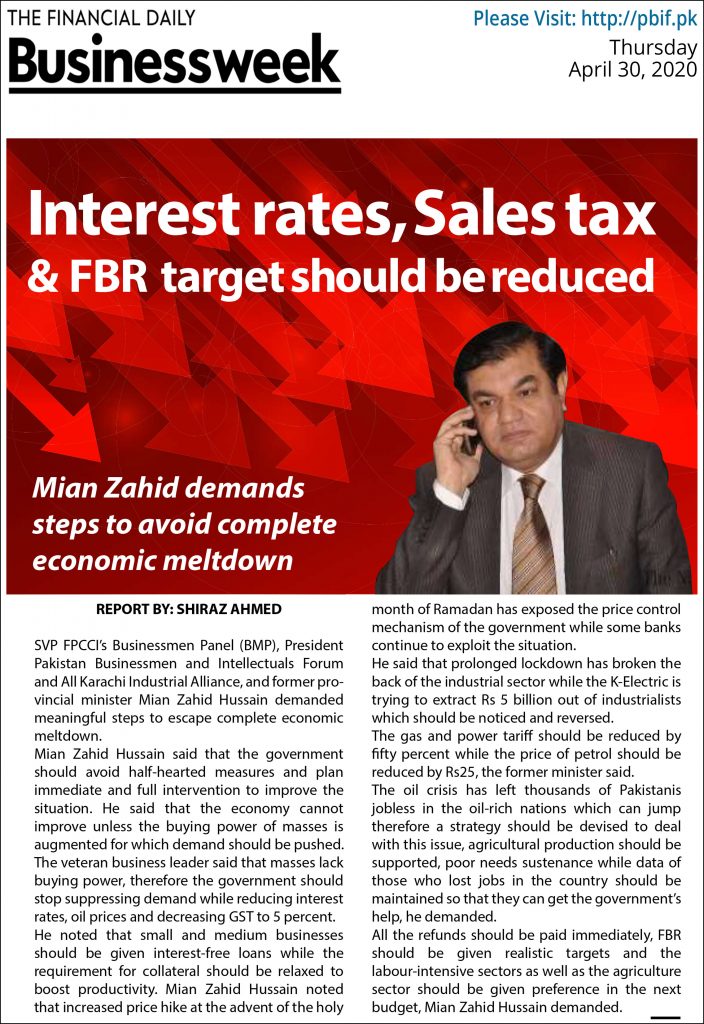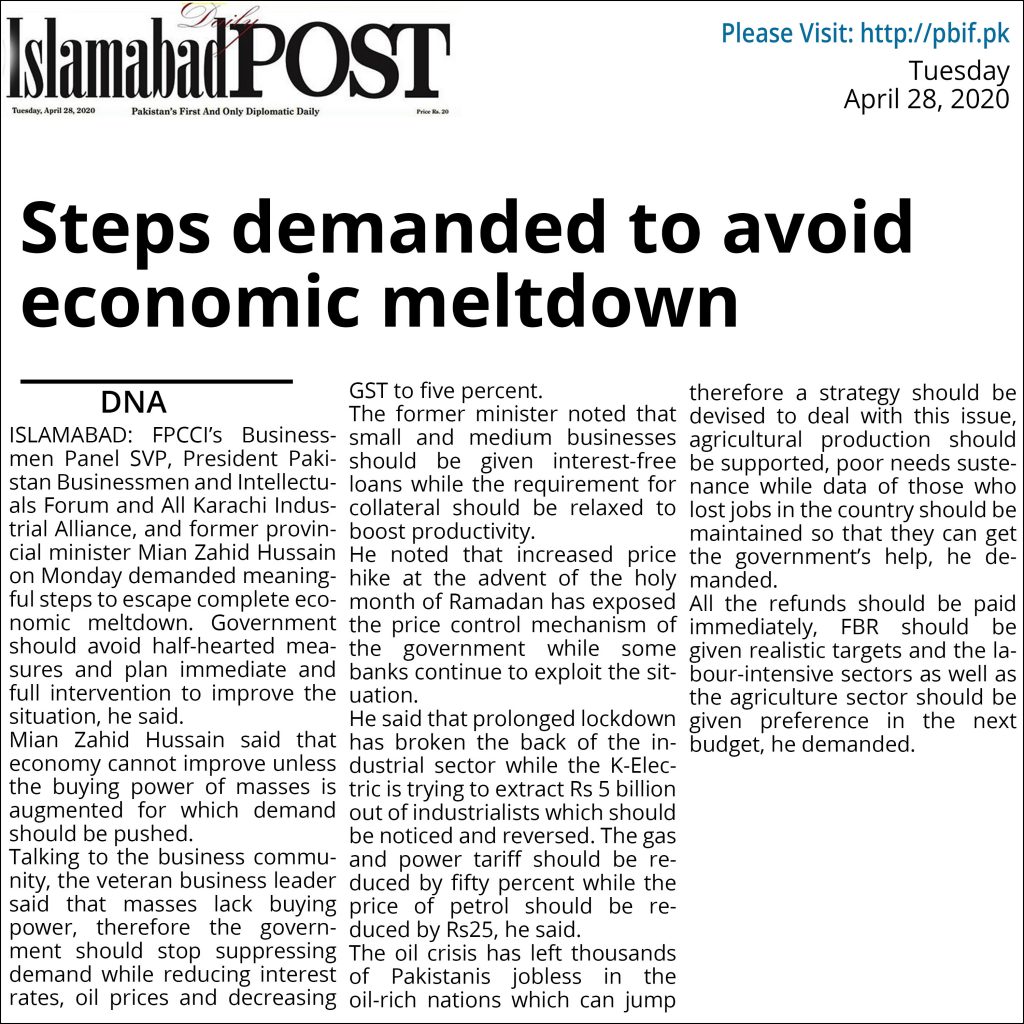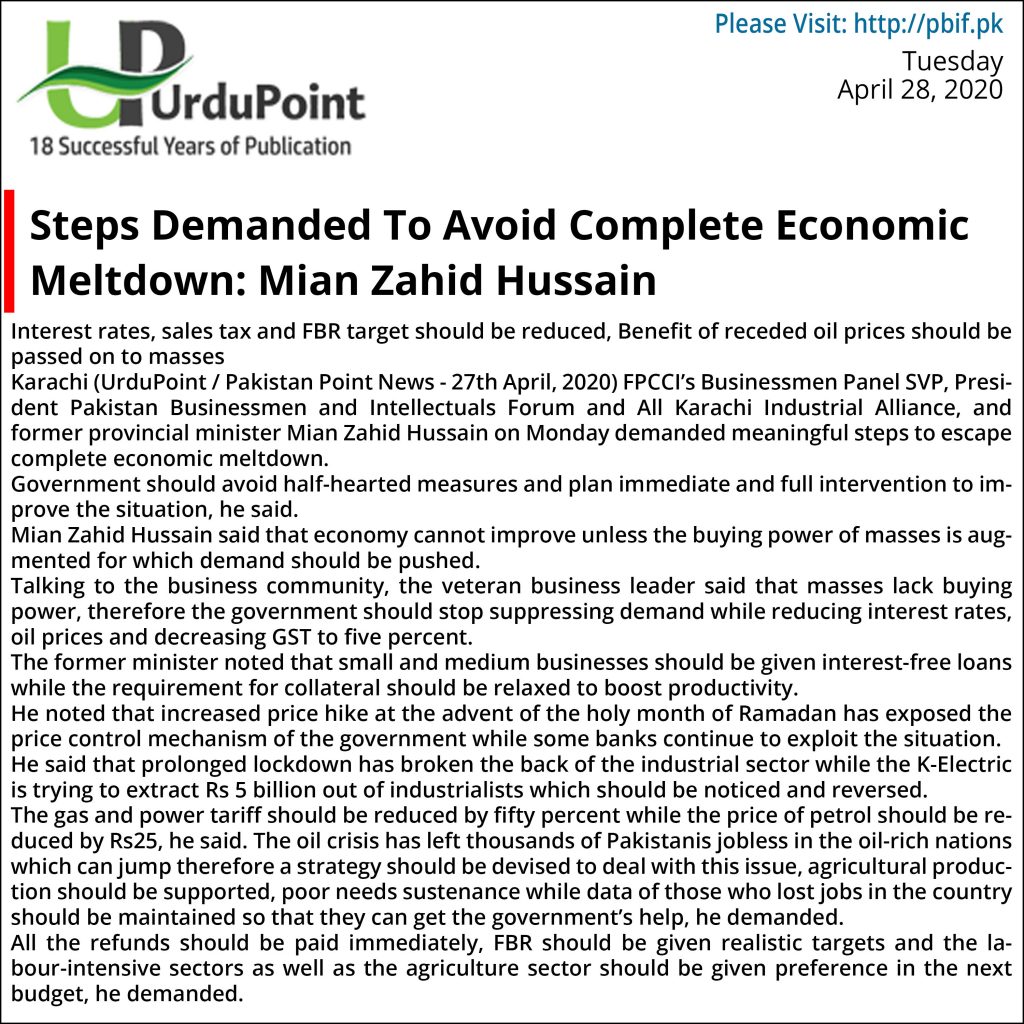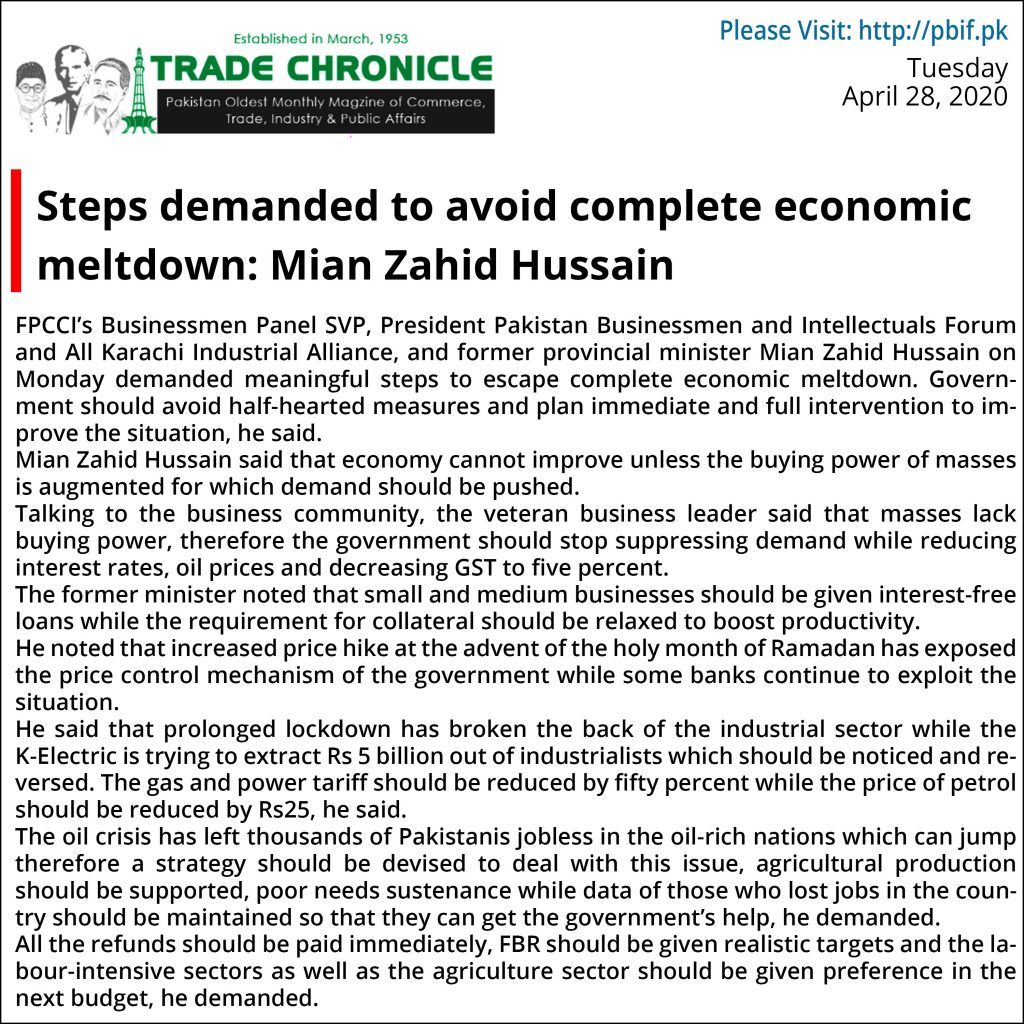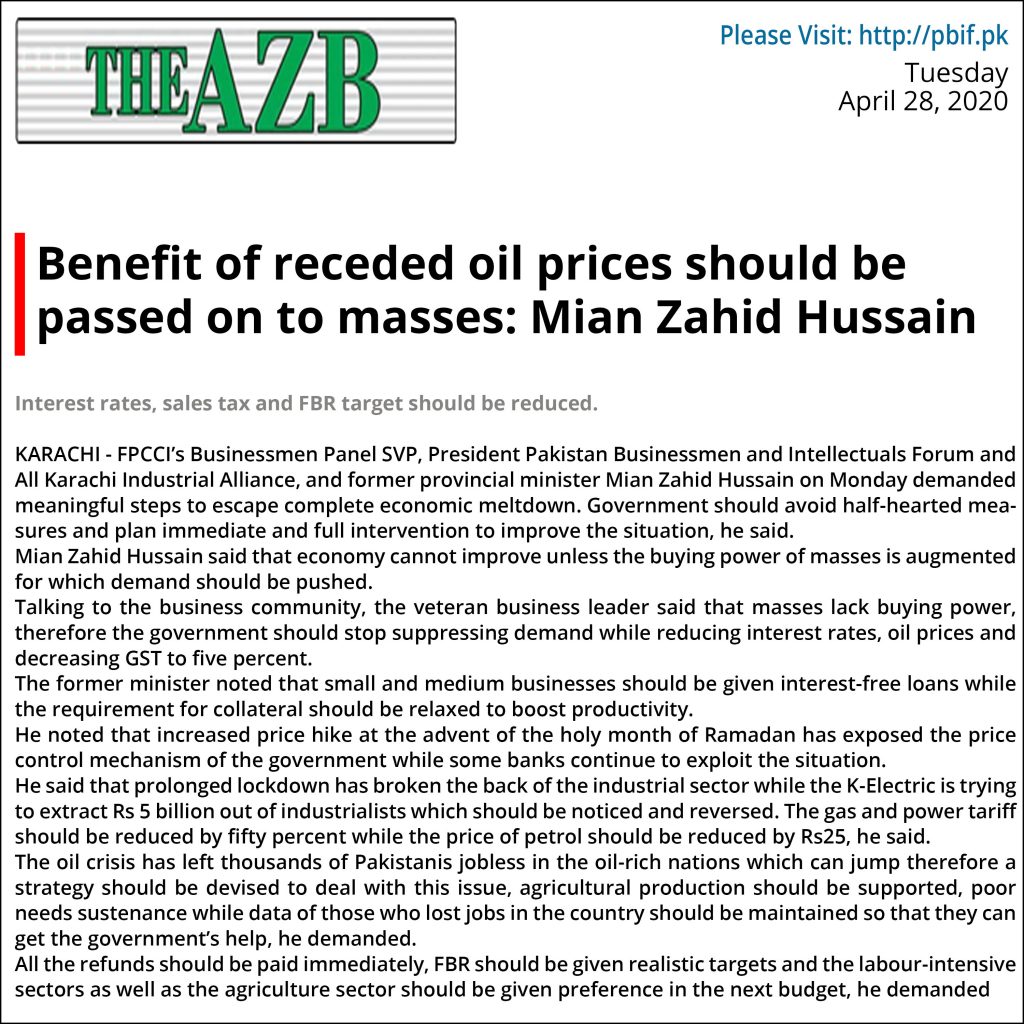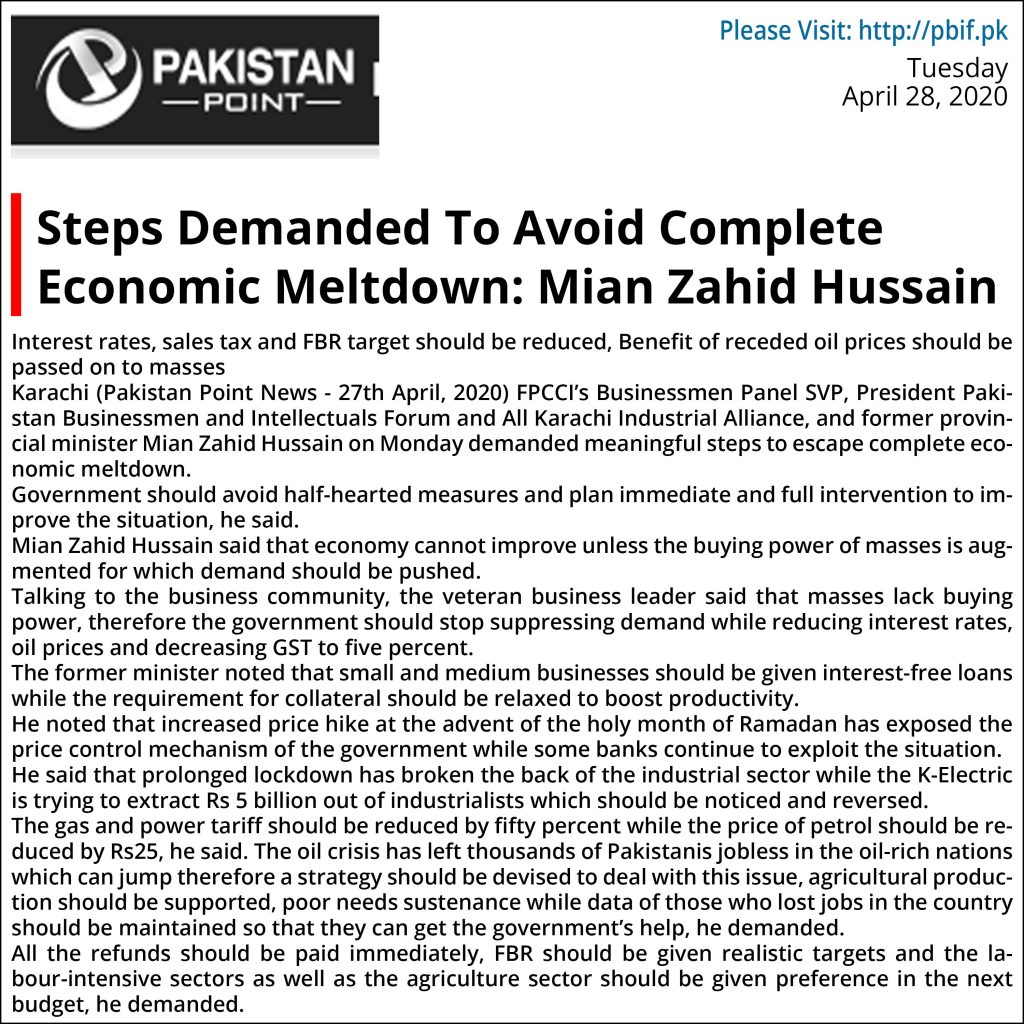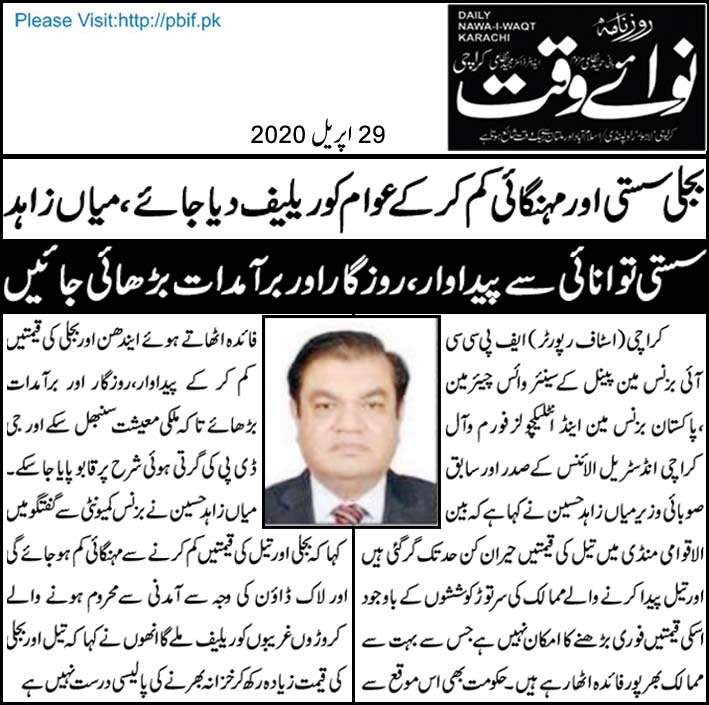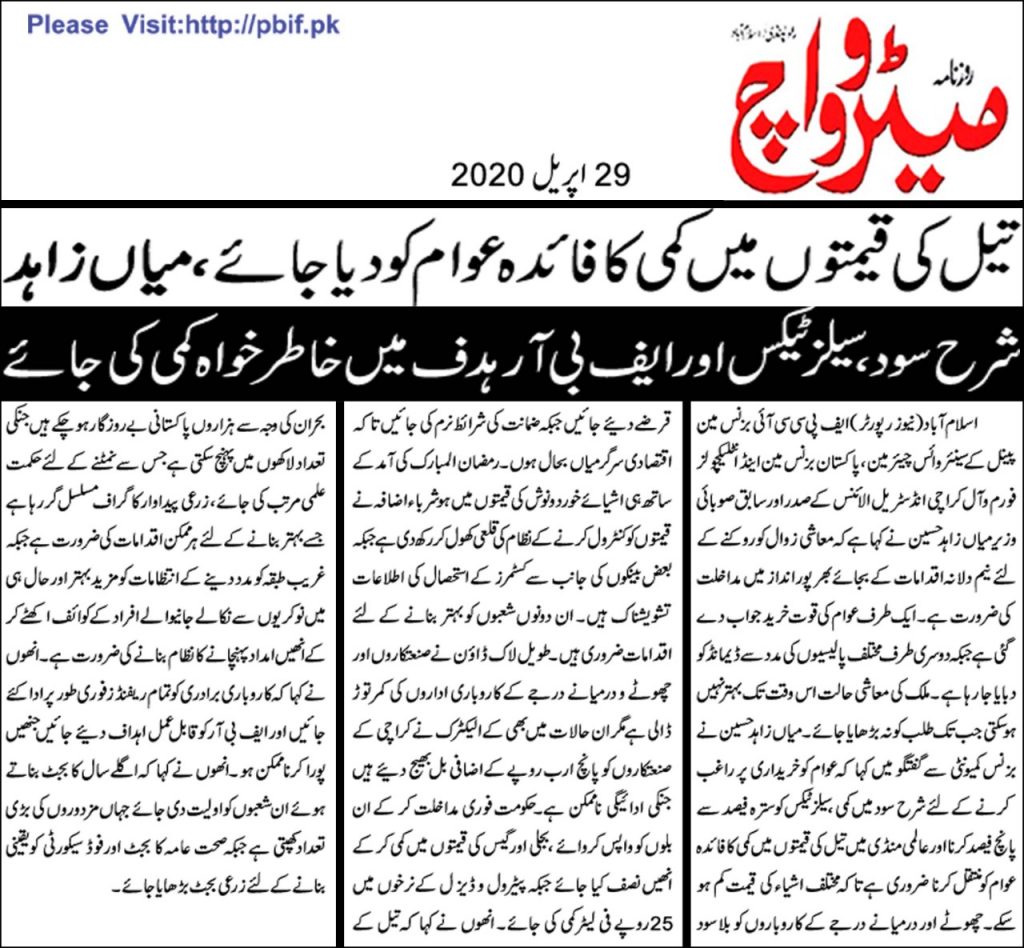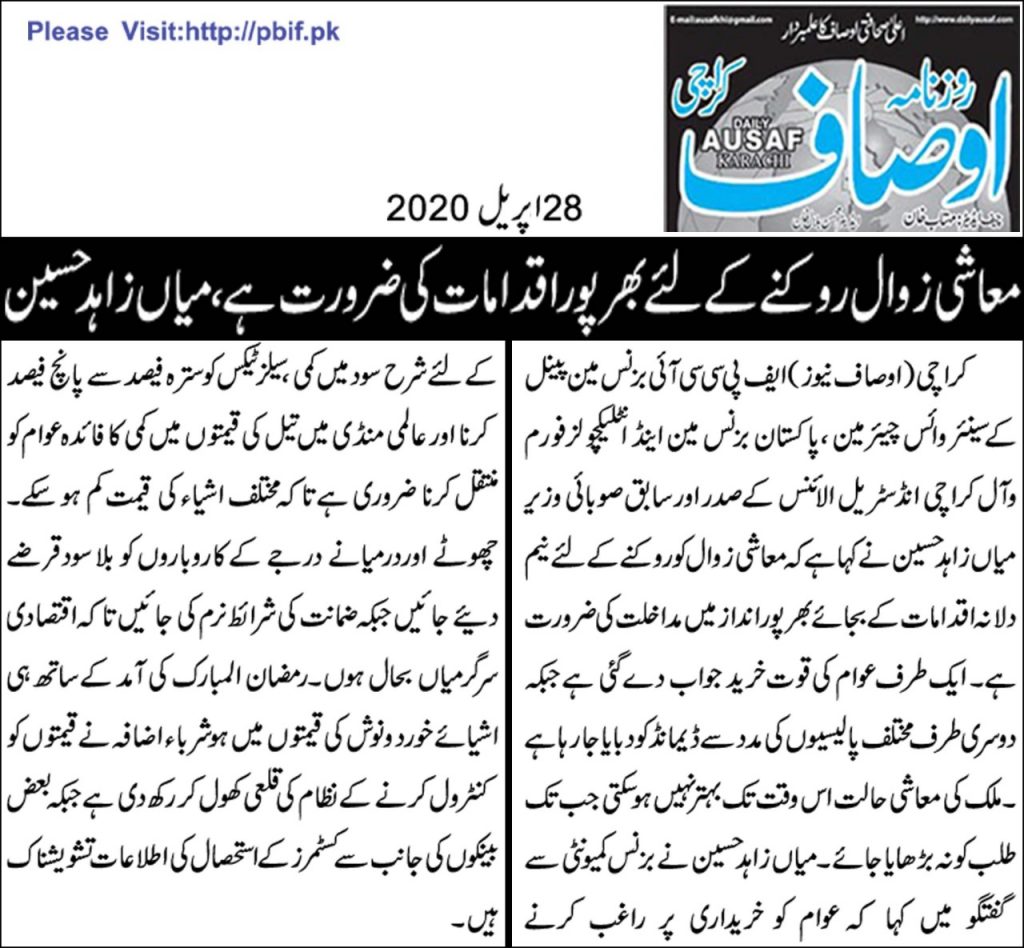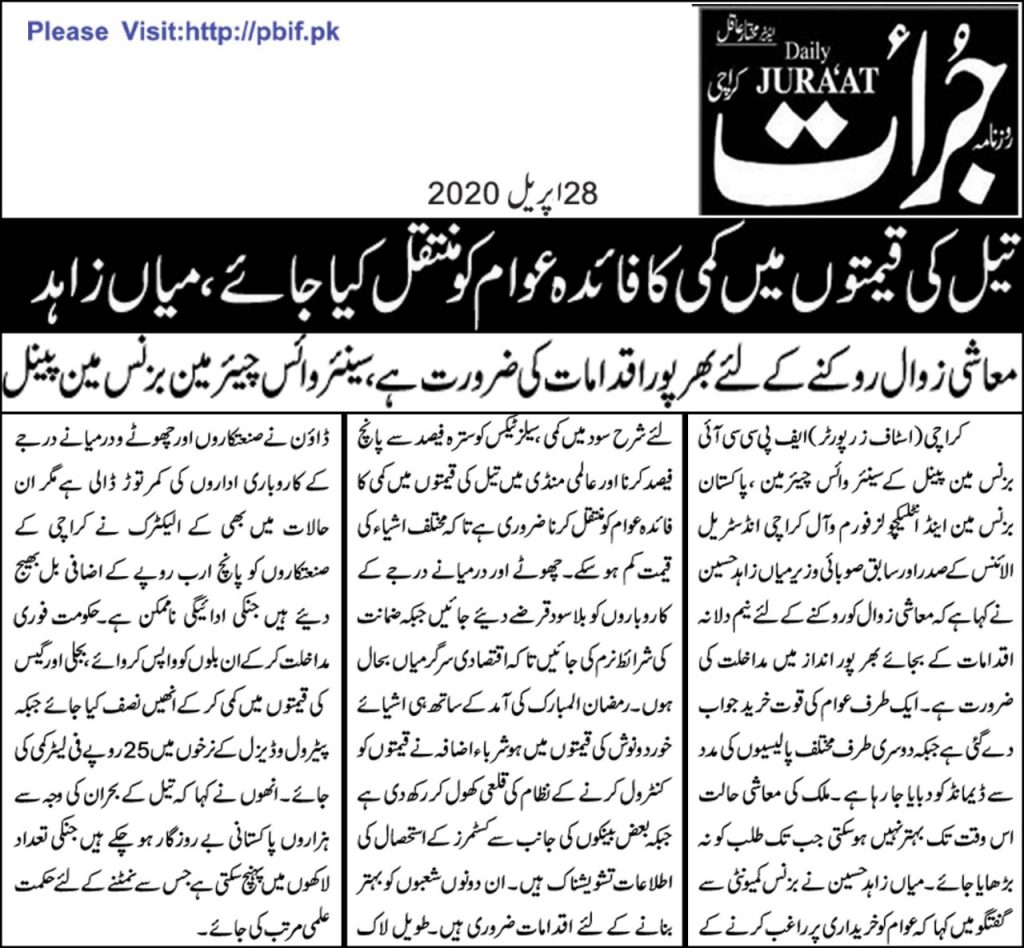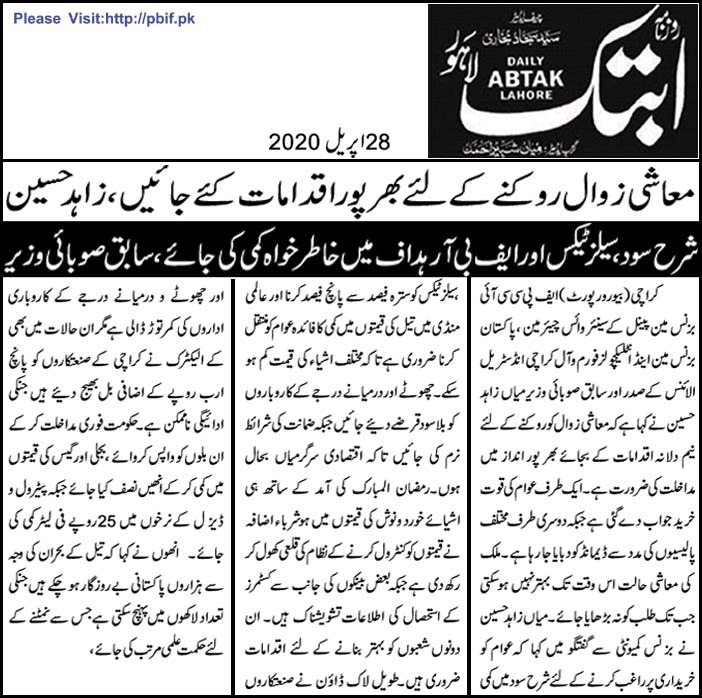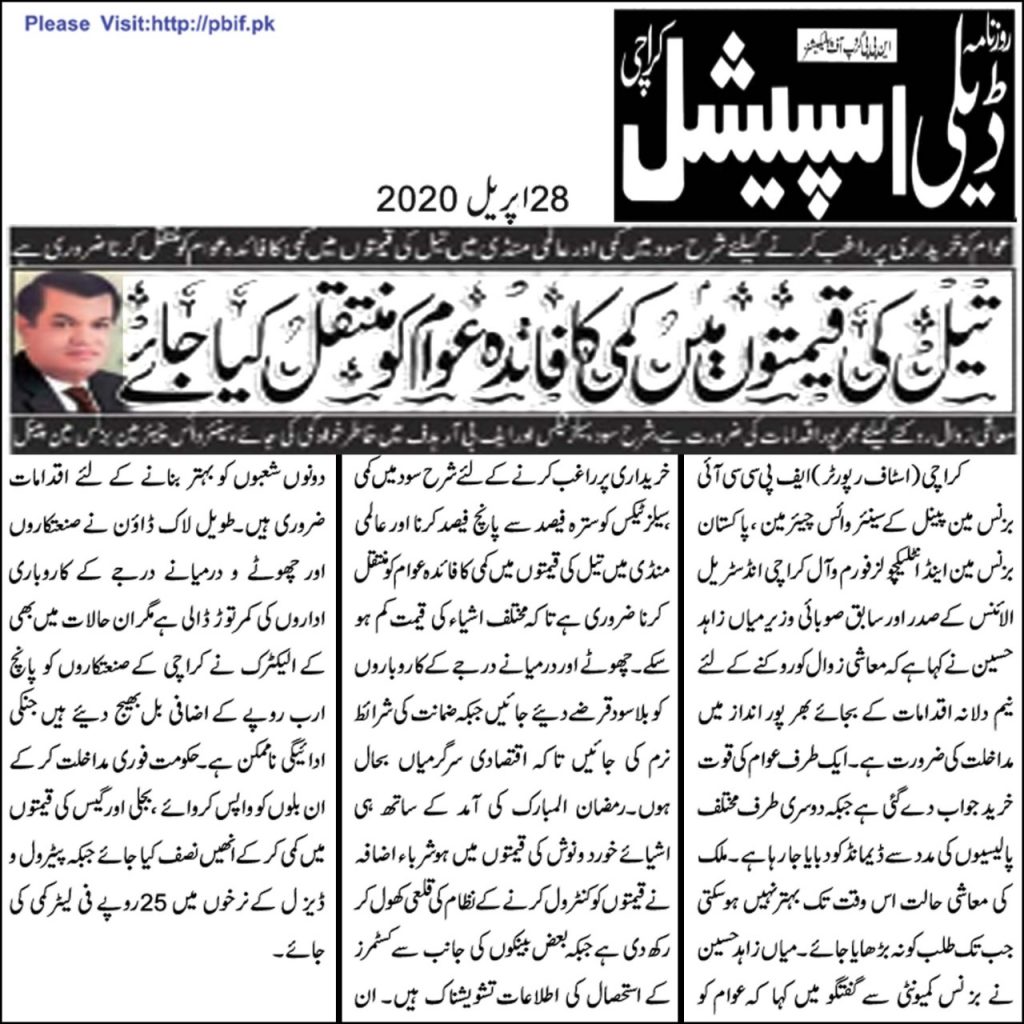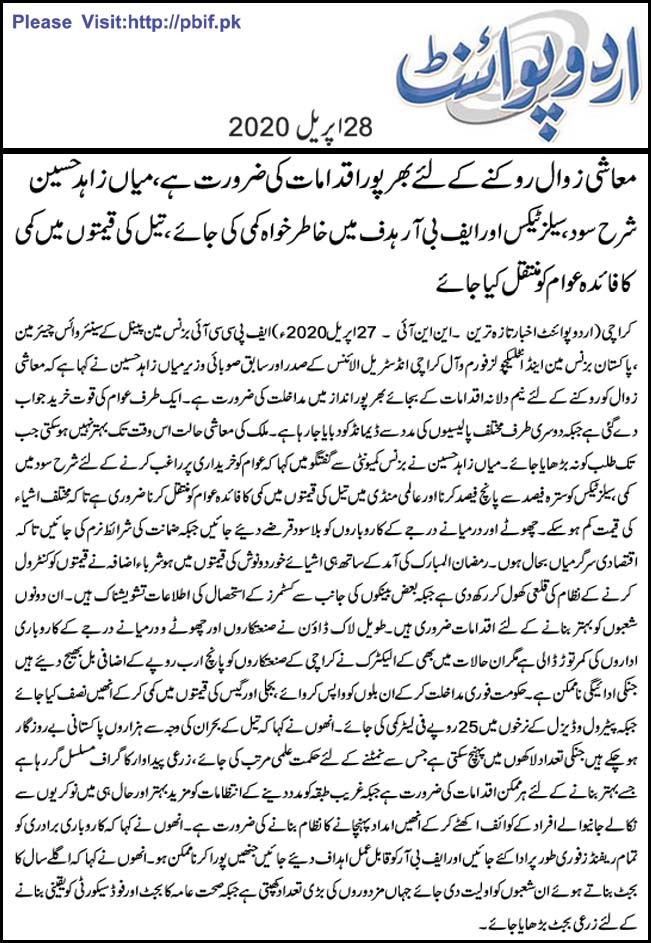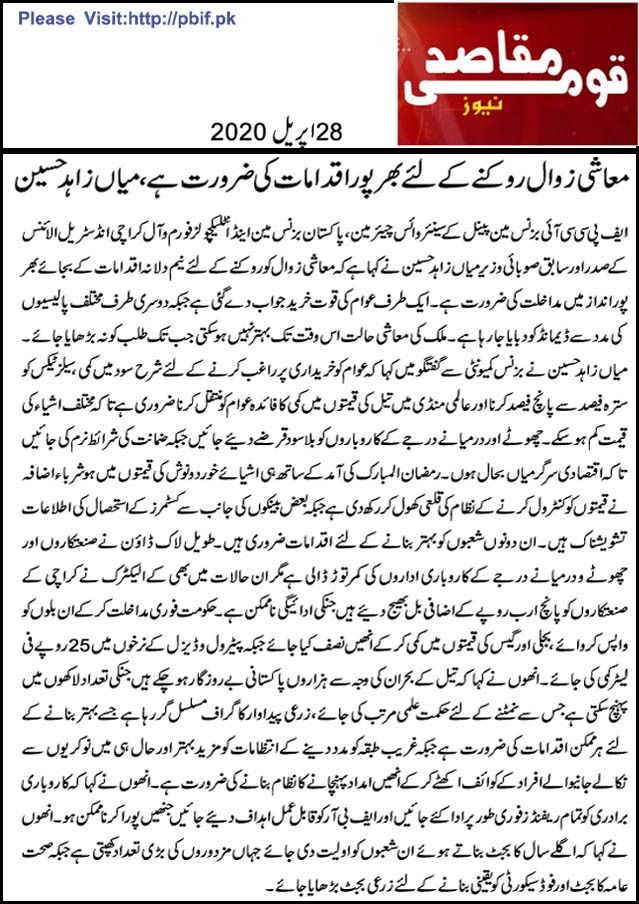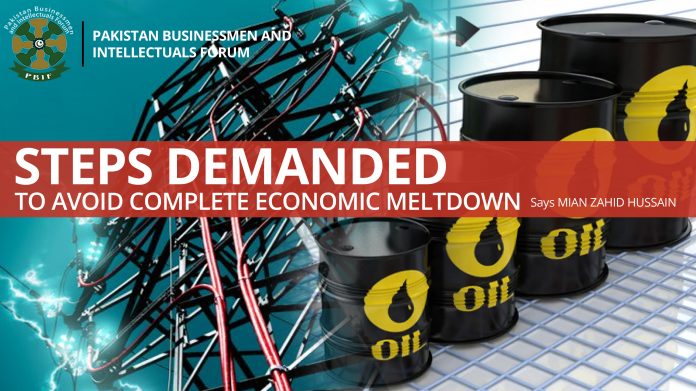
(April 27, 2020)
FPCCI’s Businessmen Panel SVP, President Pakistan Businessmen and Intellectuals Forum and All Karachi Industrial Alliance, and former provincial minister Mian Zahid Hussain on Monday demanded meaningful steps to escape complete economic meltdown. Government should avoid half-hearted measures and plan immediate and full intervention to improve the situation, he said.
Mian Zahid Hussain said that economy cannot improve unless the buying power of masses is augmented for which demand should be pushed.
Talking to the business community, the veteran business leader said that masses lack buying power, therefore the government should stop suppressing demand while reducing interest rates, oil prices and decreasing GST to five percent.
The former minister noted that small and medium businesses should be given interest-free loans while the requirement for collateral should be relaxed to boost productivity.
He noted that increased price hike at the advent of the holy month of Ramadan has exposed the price control mechanism of the government while some banks continue to exploit the situation.
He said that prolonged lockdown has broken the back of the industrial sector while the K-Electric is trying to extract Rs 5 billion out of industrialists which should be noticed and reversed. The gas and power tariff should be reduced by fifty percent while the price of petrol should be reduced by Rs25, he said.
The oil crisis has left thousands of Pakistanis jobless in the oil-rich nations which can jump therefore a strategy should be devised to deal with this issue, agricultural production should be supported, poor needs sustenance while data of those who lost jobs in the country should be maintained so that they can get the government’s help, he demanded.
All the refunds should be paid immediately, FBR should be given realistic targets and the labour-intensive sectors as well as the agriculture sector should be given preference in the next budget, he demanded.
